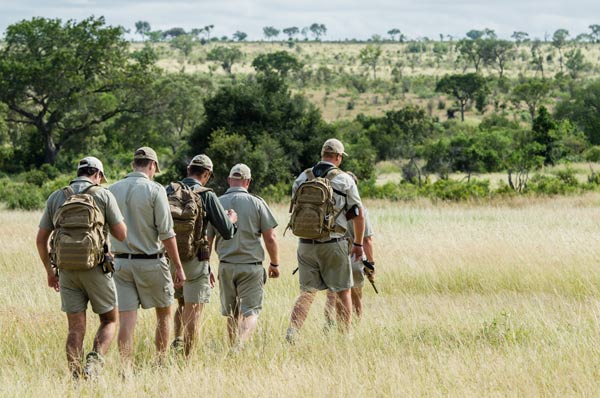Field Guiding as a career

The saying goes, “choose a job you love, and you will never work another day in your life”. This rings true for any career but for those who love the outdoors, enjoy meeting people from all over the world from different walks of life and have a passion for nature and wildlife, a career in field guiding should definitely be considered.
With Africa’s rich wildlife and biodiversity, the continent established itself as the ultimate Safari destination in the world. This coupled with the right training provides the ideal platform for a career in field guiding, where your days are filled with adventure among the most beautiful creatures to walk the planet in an equally as beautiful environment. Yes it is long hours and hard work, but so much reward at the end of the day, changed lives, happy guests, amazing moments one gets to experience in special sightings. Who else can say they watched a herd of buffalo quietly grazing at sun rise or a cheetah on the chase for dinner at sunset. (you will have to play with the wording here)
With South Africa’s eco-tourism stature, Field Guiding is definitely a lucrative career choice as professional training is affordable and valuable.
As with demand, training is offered by various institutes in South Africa. Post training, many guides have achieved great success in their careers with some branching into game lodge management, photography and tour operating.
If a career in the lodge industry appeals sounds interesting, it is important to know that facts before pursuing training, according to Schalk Pretorius of Ulovane Environmental Training.
As an expert in providing world renowned training for over 15 years, he said all guides must be registered with the National Department of Tourism (DEAT) and in order to register must have a Field Guide Association of South Africa (FGASA) qualification or Nature conservation diploma and certain FGASA requirements need to be met.
“The industry is well regulated so that the skill and academic requirements ensure that recipients of guiding involvement receive a quality experience conducted in a safe manner if all the necessary obligations have been met,” said Pretorius. “It is important that they are FGASA accredited and that the courses on offer are In accordance with the FGASA requirements.”
Pretorius and wife Candice established Ulovane Training in 2005 and have been equipping students with the relevant skills to master the trade. He added that once you have decided on a career in the bush, I recommend that you do some research on the training provider.
Training environments that create a culture of conservation are preferable as this is fundamental to creating a sustainable game lodge industry. This coupled with hands on experience of solar powered camps, recycling, green principles, vehicle skills, vehicle maintenance and the opportunity to gain practical experience in a game lodge will also be of benefit.
“Our focus has been on creating an atmosphere similar to a four or five star game lodge and in order to achieve this. Our students live in that environment for the duration of their course”, explained Pretorius. “But the difference is that they contribute to maintaining it so that a sense of ownership becomes second nature.
Ulovane is located in close to Addo Elephant National Park and where information and learning material is sourced (field trips). Amakhala Game Reserve and Kariega Game Reserve are just two of the reserves where we operate on and students are given the opportunity to learn and explore on these two top reserves in the Eastern Cape. (u will have to play with wording here as well) “We are also in the near vicinity of some of the most beautiful diverse marine areas and beaches in fact in South Africa, which allows us to offer a Marine Guide Specialist Course,” said Pretorius.
For more information, contact Ulovane Environmental Training: www.ulovane.co.za or contact Candice Pretorius on [email protected] or 083 295 3206.




